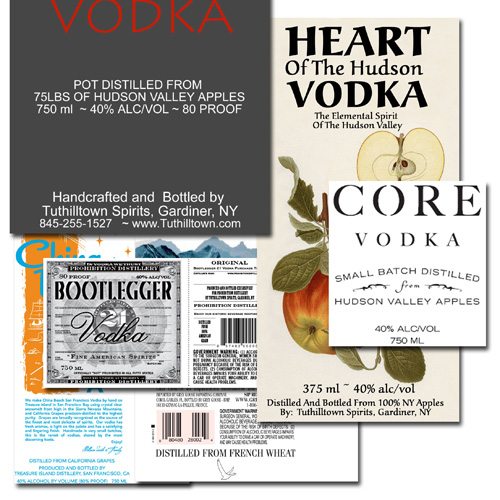Do you see something wrong with the above labels? All of them have “fancy” commodity statements, rather than one that is more stripped down. A plain commodity statement would be something like DISTILLED FROM GRAIN rather than DISTILLED FROM FRENCH WHEAT, as on the Grey Goose label above. On the one hand, there are many label approvals, such as the above. On the other hand, TTB recently rejected DISTILLED FROM NEW YORK GRAIN and said it must appear as DISTILLED FROM GRAIN instead. Can both the approvals and the rejection possibly be right? Between the two, what do you think is more right? This can be critical because most vodka and gin labels must have a compliant commodity statement, to show the commodity from which the base spirits are distilled. The examples above are Heart of the Hudson Vodka (NY Apples), Tuthilltown Vodka (75 pounds of Hudson Valley Apples), Grey Goose Vodka (French Wheat), Core Vodka (Hudson Valley Apples), Bootlegger Vodka (American Grain), and China Beach Vodka (California Grapes). Other examples are Cold River Gin (Maine Potatoes), Soft Tail Vodka (Washington State Apples), True North Vodka (Michigan Rye), and Flathead Vodka (Idaho Sugar Beets).
Continue Reading Leave a Commentrejections
Bag-in-Box Wine
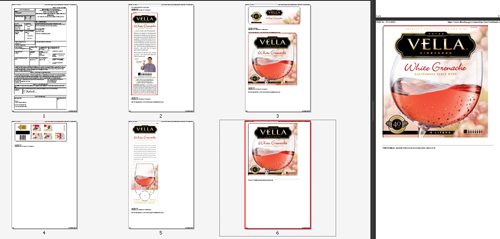
It only takes a few minutes to upload your label to COLAs Online, if it only has about one panel, such as this beer label. On the other hand, if you have a bag-in-box container, it’s a lot more work. TTB wants every panel of the box uploaded separately. Gallo’s Peter Vella wine is a good example of how TTB wants it. Each of six panels is uploaded so that the entire label approval runs six feet or more when printed.
It is common for bag-in-box containers to show the equivalent measure in bottles, ounces or glasses. This can trip up the unwary, as in this recent rejection. TTB generally requires not just the size of the box but also the size of each unit to which the box is compared (for example, “5L is equivalent to 6.5 750 ml. bottles”). The Vella label shows how TTB wants it.
Continue Reading Leave a CommentTags: container, policy, rejections
Adult Beverages
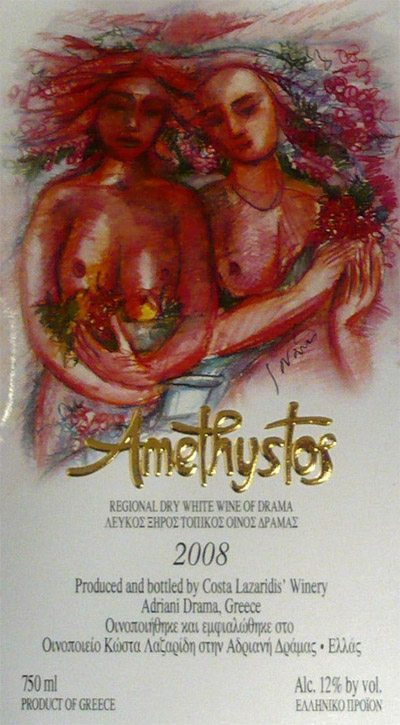
Here it is, in all its glory, at long last. TTB’s “areola” policy. From time to time, depending on the circumstances, TTB will say these particular body parts are “obscene” or “indecent” and must be covered. Here is a recent example of such a rejection. It says “Please cover the areolas on the woman.” And these, by way of another example, are certainly well covered. The label above is Amethystos dry white wine, from the Drama region of Greece.
Continue Reading Leave a CommentTags: legally interesting/controversial, policy, rejections, risqué, sexual
Remove the Word "Digestif"
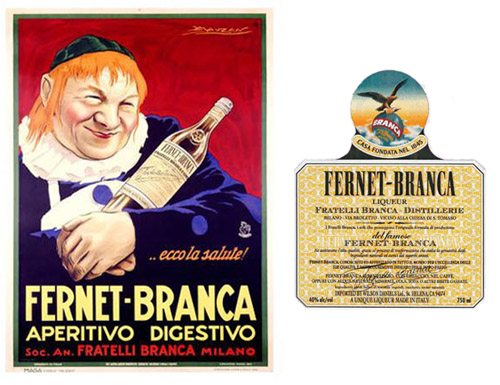
Fernet-Branca has been well known around the world as a “digestiv” since about 1845. The above poster shows Fernet-Branca described as a “digestivo.” By contrast, the US label, on the right, bears no reference to this key term. TTB does not allow any reference to digestif, digestiv or similar. Here is an example of a recent rejection, wherein TTB explains that the term is not allowed, and why. TTB regards it as a therapeutic claim. Eric Asimov explains:
Digestives were historically intended as palliatives, meant to counter all sorts of ailments and physical imbalances. They may no longer be assigned quite the same medicinal value today as they were a few hundred years ago, but count me among the many who believe they can help to settle that queasy feeling.
Fernet-Branca is one of the more famous examples of a digestif, but there are others, such as Fernet Stock, Escorial, Becherovka, Averna, bitters, amaro, etc. In general, digestifs are intended to be consumed after a meal, with dessert of coffee. By contrast, aperitifs, such as Aperol and Campari, are most often served before meals.
Continue Reading Leave a CommentOver Regulated Ale, Part 1

I saw this label a few days ago and it screamed out to say there was drama lurking under the surface. Indeed there was. Kevin Bloom, brewer at Manchester Brewing, explained:
The original label was for St. Paula’s Liquid Wisdom, which shows the Renaissance painting “The Conversion of Paula by Saint Jerome.” However, TTB insisted that we were making a medical claim of physical effect, i.e., if you drank our beer you’d become wise. We countered that no reasonable person believed that drinking beer would make them wise (although, I suppose, if you drank enough you would probably learn the wisdom of avoiding such conduct henceforth). TTB said “they had to consider all the people” by which I would guess they mean idiots. Now, it’s hard to argue that there aren’t a lot of idiots about, but we like to think they drink Other People’s Beer.
Anyway, we appealed the decision. While the appeal was pending, we submitted Over Regulated Ale as a substitute. TTB had no objection to the Over Regulated label. We continue to dialogue with TTB about St. Paula’s and look forward to having approval soon.
Is TTB being too tough? Is Kevin being a baby? He only has to comply with TTB, EPA, FDA, IRS, SEC, FTC,...
Continue Reading Leave a CommentTags: legally interesting/controversial, policy, political, rejections, speech
Rejection: Refreshing
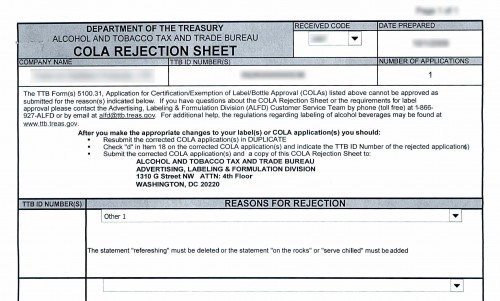
Quite a few readers have said, “yeah, unusual approvals are great, but what about rejections?” Here we have the first post of many, from time to time, showing common or revealing label rejections. First, some ground rules. We will not show the brand or company at issue. TTB tends to treat label rejections as confidential and approvals as public, and we’ll mirror this sensible policy. To this end, we may blur out some identifying information where necessary, such as above. In rare cases, we’ll change a little bit of text (in the example above we changed about three letters to avoid the distraction that might otherwise be caused by typos; we did not change the substance). If you have a good and interesting rejection, please let us know and we’ll make sure to treat it in line with the policy above. On to the controversial term at hand. For many decades, TTB has been concerned about the term “refreshing,” so common on all manner of beverages. TTB’s concern seems to be that it’s awfully close to a therapeutic claim, suggesting an effect on your body. “Invigorating” or “stimulating” would go a bit further and probably raise the same issues. Rather than ban the term “refreshing” outright — which would seem a bit out of proportion to the...
Continue Reading Leave a CommentTags: policy, rejections
